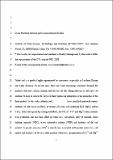Por favor, use este identificador para citar o enlazar a este item:
http://hdl.handle.net/10261/81644COMPARTIR / EXPORTAR:
 SHARE SHARE
 CORE
BASE CORE
BASE
|
|
| Visualizar otros formatos: MARC | Dublin Core | RDF | ORE | MODS | METS | DIDL | DATACITE | |

| Campo DC | Valor | Lengua/Idioma |
|---|---|---|
| dc.contributor.author | Martínez Álvarez, Óscar | - |
| dc.contributor.author | Gómez Guillén, M. C. | - |
| dc.date.accessioned | 2013-09-09T09:28:13Z | - |
| dc.date.available | 2013-09-09T09:28:13Z | - |
| dc.date.issued | 2013 | - |
| dc.identifier | doi: 10.1016/j.lwt.2013.04.013 | - |
| dc.identifier | issn: 0023-6438 | - |
| dc.identifier.citation | Food Science and Technology 53: 387- 394 (2013) | - |
| dc.identifier.uri | http://hdl.handle.net/10261/81644 | - |
| dc.description.abstract | Salted cod is a product highly appreciated by consumers, especially in Southern Europe and Latin America. In recent years there has been increasing consumer demand for products with low sodium content, and this has led the salting industry to seek new salt mixtures to help to reduce Na+ levels without producing alterations in the properties of the final product. In this study, Atlantic cod (Gadus morhua) was initially brined with various mixtures of salts based on NaCl, at various pH levels and including KCl, MgCl2 and/or CaCl2. After subsequent dry salting with NaCl, the Na+, K+, Ca2+ and Mg2+ cation contents were evaluated, and also their effect on water loss, salt uptake, entry of chloride, water holding capacity (WHC), water extractable protein (WEP) and hardness of the end product. A greater presence of K+ in muscle was associated with greater water loss, salt uptake and hardness of the dry salted product. Moreover, incorporation of Ca2+ and Mg2+ negatively affected water holding capacity. These changes were not dependent on brine pH and might significantly alter the acceptability of the final product. © 2013 Elsevier Ltd. | - |
| dc.description.sponsorship | This research was supported by the European Union under project FAIR-CRAFT CT 98-9109. | - |
| dc.language.iso | eng | - |
| dc.publisher | Elsevier | - |
| dc.rights | openAccess | - |
| dc.title | Influence of mono- and divalent salts on water loss and properties of dry salted cod fillets | - |
| dc.type | artículo | - |
| dc.identifier.doi | 10.1016/j.lwt.2013.04.013 | - |
| dc.date.updated | 2013-09-09T09:28:13Z | - |
| dc.description.version | Peer Reviewed | - |
| dc.type.coar | http://purl.org/coar/resource_type/c_6501 | es_ES |
| item.cerifentitytype | Publications | - |
| item.grantfulltext | open | - |
| item.openairecristype | http://purl.org/coar/resource_type/c_18cf | - |
| item.fulltext | With Fulltext | - |
| item.languageiso639-1 | en | - |
| item.openairetype | artículo | - |
| Aparece en las colecciones: | (ICTAN) Artículos | |
Ficheros en este ítem:
| Fichero | Descripción | Tamaño | Formato | |
|---|---|---|---|---|
| Influence_ of_ mono- and_ divalent_ salts_ on _water_ loss_ and properties of dry salted cod.pdf | 385,07 kB | Adobe PDF |  Visualizar/Abrir |
CORE Recommender
SCOPUSTM
Citations
29
checked on 21-abr-2024
WEB OF SCIENCETM
Citations
23
checked on 23-feb-2024
Page view(s)
295
checked on 24-abr-2024
Download(s)
349
checked on 24-abr-2024
Google ScholarTM
Check
Altmetric
Altmetric
NOTA: Los ítems de Digital.CSIC están protegidos por copyright, con todos los derechos reservados, a menos que se indique lo contrario.
